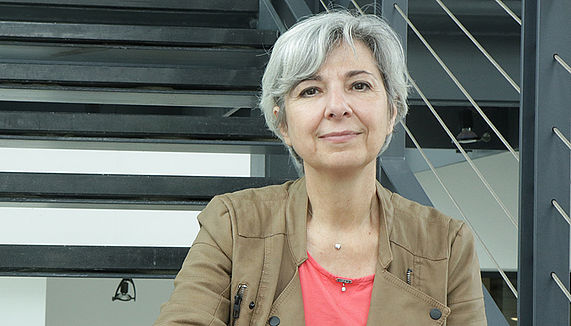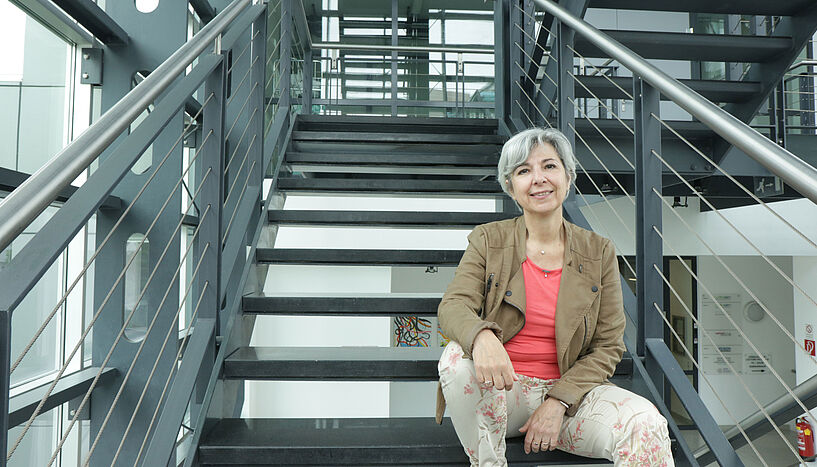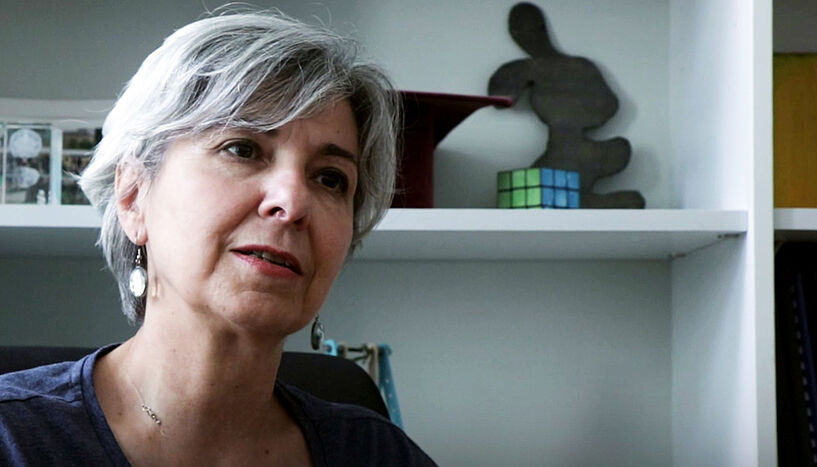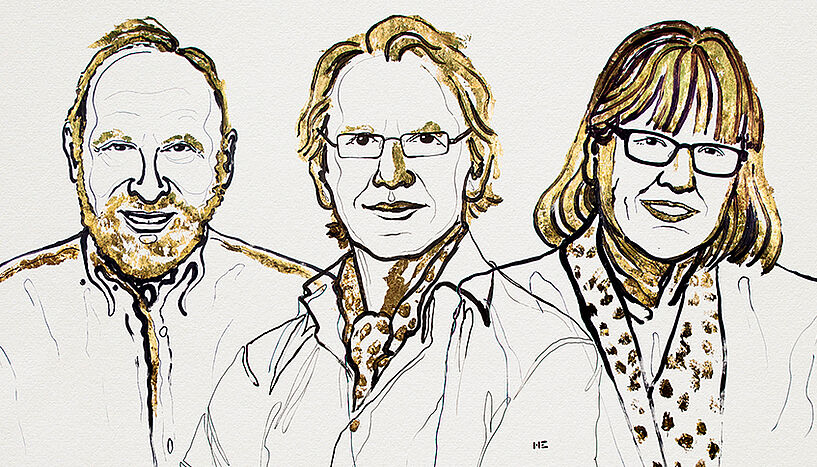A Nobel Prize for "help to self-help"
| 03. Oktober 2018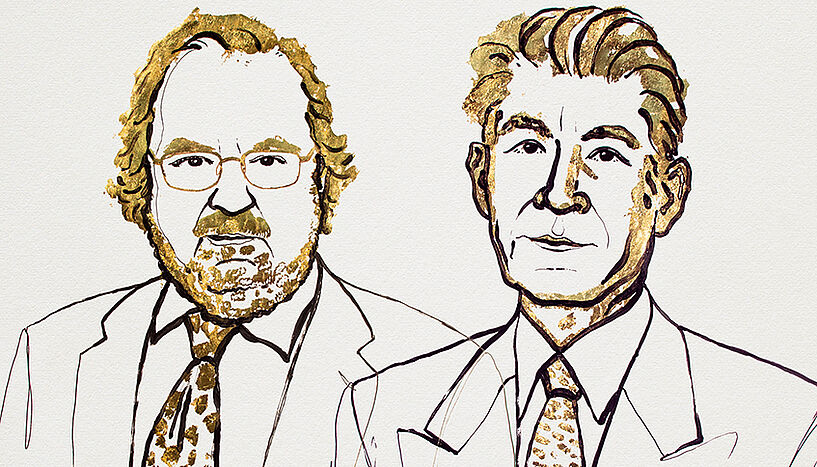
This year’s laureates, James P. Allison and Tasuku Honjo, showed how different strategies for inhibiting the brakes on the immune system can be used in the treatment of cancer. (Ilustration: Niklas Elmehed, © Nobel Media AB 2018)
The 2018 Nobel Prize for medicine honors the achievement of two scientists, James P. Allison of the University of Texas and Tasuku Honjo of Kyoto University, who have discovered and pioneered a novel approach to treat cancer. Manuela Baccarini of the University of Vienna explains the background.
The approach is based on re-empowering and rescuing immune cells which have the potential of destroying cancer cells. Cancer immunotherapy is showing excellent, in fact unmatched clinical activity against a broad range of tumors, extending survival not by months but by years.
Help-to-self-help is the basis of this success
Our immune system can be thought of as of a wide range of weapons that can be deployed to defend the body against virtually all threats, no matter whether they come from bacteria, viruses, or, as in this case, transformed cells. The only precondition for it to work efficiently is that the cells of the immune system must recognize the assailant in order to fight it. A specific subset of cells, termed T-cells, are instrumental for this "search and destroy" operation. They patrol the body and dispose of transformed cells before they can start forming a tumor.
Immune Checkpoints
Clearly, these potential killers need to be kept in check by failsafe mechanisms ensuring that they will not become unduly activated and attack normal cells – these mechanisms are termed immune checkpoints. One of these checkpoints, implemented by a molecule called CTLA-4, prevents undue T-cell activation; the other depends on a molecule pair, PD1/PD1L, that induces T-cell inactivation.
Cancer cells have strategies that allow them to modify their environment, so that it is averse to T-cell activation; and they can directly inactivate T-cells by expressing PD1L. In other words, cancer cells can hijack the checkpoints imposed by the immune system to prevent self-harm.
Developing Antibodies
Many prominent scientists have pursued and are pursuing the goal of enlisting the immune system in the fight against cancer and making it invulnerable to the attempts of cancer cells to thwart it. Allison and Honjo’s strategy to reactivate the checkpoints by developing antibodies against CTLA4 and PD1 has shown that this is possible, starting a revolution that is transforming cancer therapy and promises long-term benefits to tumor patients.
So what are the next milestones of cancer immunotherapy? One major field of interest is the effort to understand why some tumors are resistant to checkpoint inhibitors, and to overcome this limitation. Towards this goal, the checkpoint inhibitors are also being tested in combination with each other, to promote T-cell activation and prevent inactivation at the same time; or in combination with agents that modify the tumor microenvironment to promote T-cell recruitment or activation. Finally, cancer vaccines and other strategies to modify T-cells so that they are more specifically and efficiently directed to kill tumor cells are under active investigation. The field is enormously energized and we can expect fast progress.
As a molecular biologist, it is enormously rewarding to witness how understanding the basic mechanisms that regulate the immune system can be translated in therapies bringing real hope to many cancer patients.
Manuela Baccarini, born in Rome, studied in Italy and did postdoctoral fellowships in Germany and the USA. Since 2009 Manuela Baccarini is professor of Cell Signaling at Max. F. Perutz Laboratories at University of Vienna.

